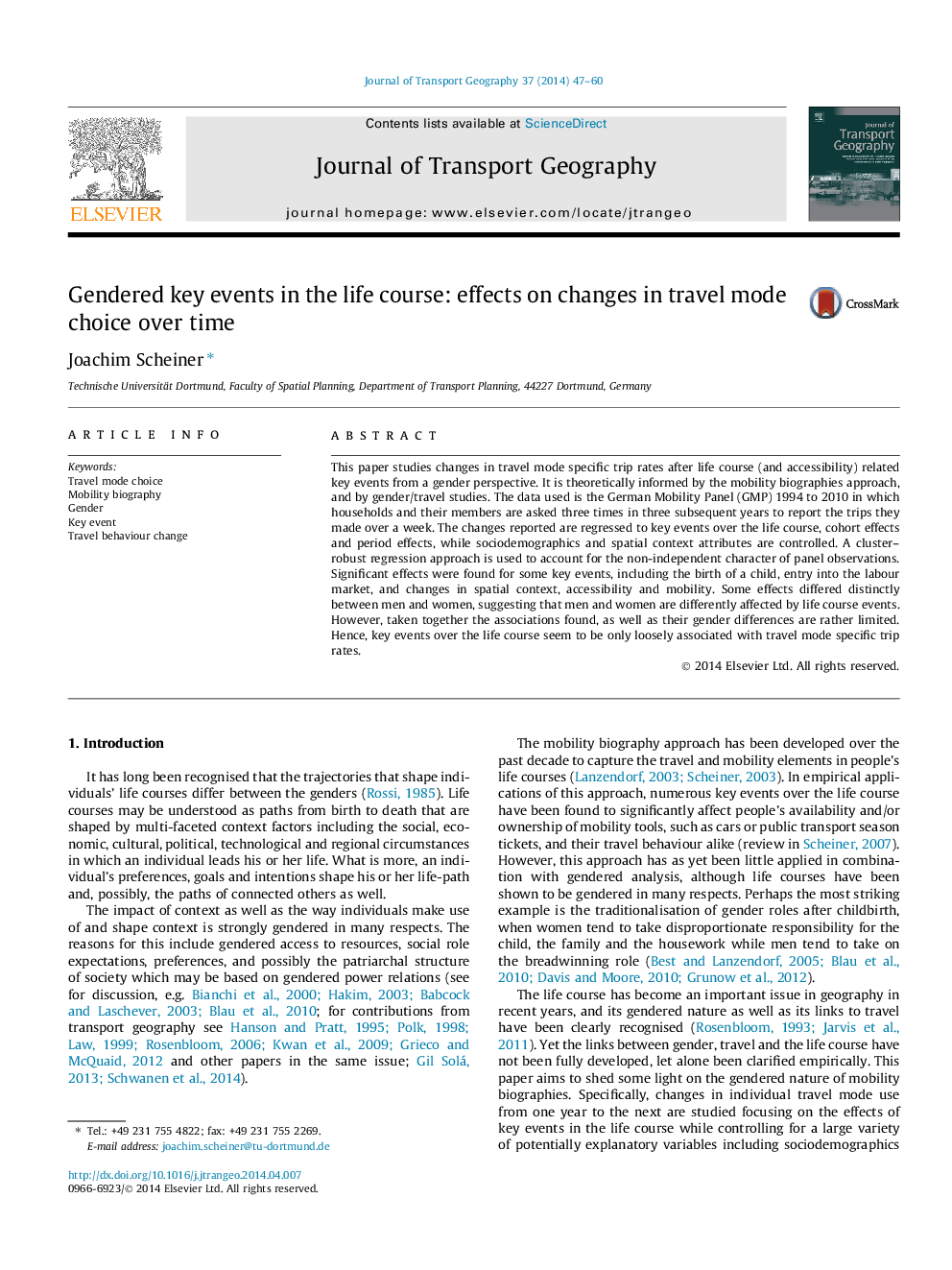| Article ID | Journal | Published Year | Pages | File Type |
|---|---|---|---|---|
| 1059244 | Journal of Transport Geography | 2014 | 14 Pages |
•Changes in travel mode use after life course and accessibility related key events are studied from a gender perspective.•Significant effects were found for some key events, including the birth of a child and entry into the labour market.•Changes in spatial context, accessibility and mobility were significant as well.•The effects of some key events differed distinctly between men and women.•Taken together the effects, as well as their gender differences, are limited.
This paper studies changes in travel mode specific trip rates after life course (and accessibility) related key events from a gender perspective. It is theoretically informed by the mobility biographies approach, and by gender/travel studies. The data used is the German Mobility Panel (GMP) 1994 to 2010 in which households and their members are asked three times in three subsequent years to report the trips they made over a week. The changes reported are regressed to key events over the life course, cohort effects and period effects, while sociodemographics and spatial context attributes are controlled. A cluster–robust regression approach is used to account for the non-independent character of panel observations. Significant effects were found for some key events, including the birth of a child, entry into the labour market, and changes in spatial context, accessibility and mobility. Some effects differed distinctly between men and women, suggesting that men and women are differently affected by life course events. However, taken together the associations found, as well as their gender differences are rather limited. Hence, key events over the life course seem to be only loosely associated with travel mode specific trip rates.
